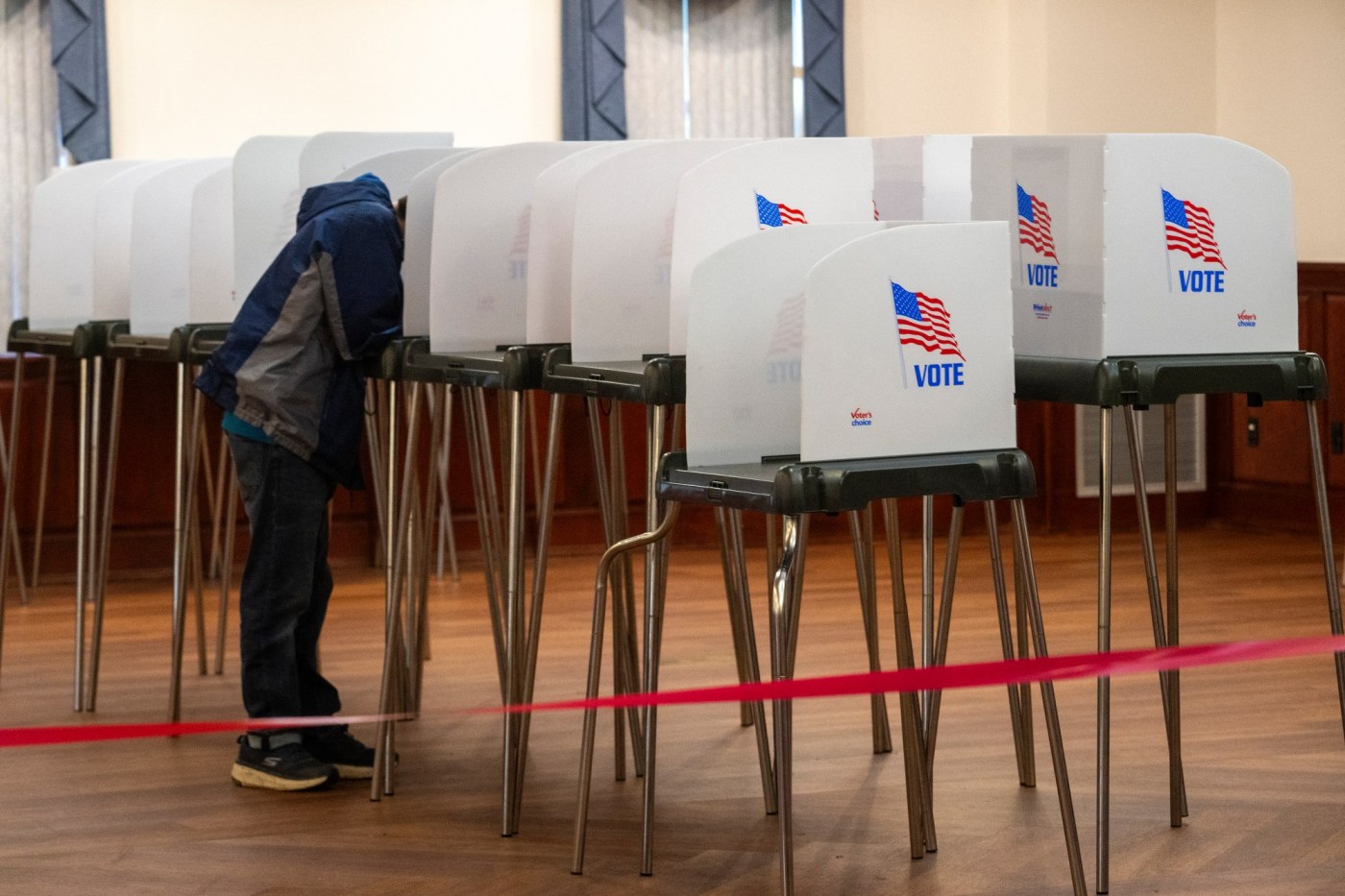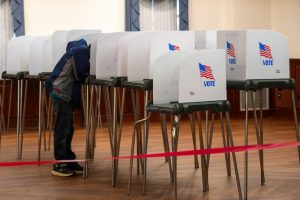
TikTok ban is popular with voters as AI stirs privacy fears, poll shows
Michael Shepard and Gregory Korte | (TNS) Bloomberg News
Many swing-state voters say they are worried that the growing presence of artificial intelligence could one day diminish privacy and hurt job prospects, according to a new Bloomberg News/Morning Consult poll that also found majority support for efforts to ban TikTok.
More than half of respondents in seven battleground states predicted a negative impact from AI on privacy, with nearly half seeing a future negative impact on jobs, the poll found. At the same time, artificial intelligence was seen having positive impacts on health by 45% of respondents and on education by 41%.
In the survey, half of voters support banning TikTok in the U.S. if its Beijing-based parent ByteDance Ltd. fails to divest the video-sharing platform under a new law signed by President Joe Biden last month. Two-thirds of those polled said they were worried that the app could be used by foreign adversaries to collect data and manipulate information in the U.S.
The poll results offer a window into how Americans view hot-button tech challenges in Washington, including AI’s rapid emergence, concentration of market power in a handful of big companies and security concerns raised by TikTok’s Chinese ownership. The survey of 4,962 registered voters in Arizona, Georgia, Michigan, Nevada, North Carolina, Pennsylvania and Wisconsin has an overall statistical margin of error of 1 percentage point.
Matt Monday, senior manager of Morning Consult, identified privacy as a common concern for voters surveyed, adding that the issue has been central to discussions of big tech over the past decade.
“They’re most anxious about privacy. That’s not just AI,” Monday said. “The geopolitics around TikTok and data collection and privacy are a real concern.”
Here’s a closer look at the findings:
AI’s peril and promise
Breakthroughs in AI have fueled fear that it could expose consumers’ personal data and cause widespread workforce disruption, even as it promises to transform vast swaths of the economy. Policymakers in Washington are trying to develop rules that minimize AI’s potential risks — especially the spread of disinformation — while spurring innovation.
In the swing-state poll, more than four in 10 registered voters saw a negative impact from AI on national security, and a similar proportion saw a negative effect on U.S. elections. Responding to a separate question that did not mention artificial intelligence, 60% of voters expressed little trust that the November U.S. election would be free from misinformation.
Monday said the findings on AI broke down along generational lines, with Generation Z voters more optimistic than Baby Boomers, who are older than 60. Overall, respondents had upbeat views of how the new technology could affect some industries.
“The big positives are health, education and entertainment,” he said. “A plurality say they will have a more positive effect than negative.”In the entertainment industry, however, AI has also been seen as a risk. The SAG-AFTRA union of Hollywood actors and screenwriters engaged in a four-month strike last year over in part over fears that the technology would make them irrelevant.
Tech regulation and antitrust
Regulating technology companies ranked as important for 65% of those polled in deciding who to vote for in the election, with respondents saying they trust presumptive Republican nominee Donald Trump over Biden 39% to 35% to oversee the industry as president.
Under Biden, federal antitrust enforcers have gone after Alphabet Inc.’s Google, Amazon.com Inc., Apple Inc., and Meta Platforms Inc. with a volley of lawsuits alleging anticompetitive behavior that harmed consumers and undercut competitors. More than half of the Bloomberg News/Morning Consult poll respondents said they would support the breakup of at least one of the four companies.
TikTok ban opponents
Last month, Biden signed into law a foreign aid bill requiring TikTok’s Chinese owners to divest or face a U.S. ban. The company and some of the platform’s creators have since filed lawsuits seeking to block the measure, saying it violates their First Amendment right to free expression.
While a majority in the poll supported the divest-or-ban policy, 58% of regular TikTok users surveyed said they opposed it. At the same time, 51% of the app’s regular users expressed concern about foreign data collection.
Some 62% of those polled said they were concerned over TikTok’s effect on mental health, while 71% expressed concern about the impact on young people.
Swing-state voters who agree with the TikTok ban support Trump over Biden by 10 percentage points — despite Biden signing the ban into law.
“The fact that supporters of the ban lean toward Trump makes sense given the demographics of the supporters and opponents,” Monday said. Supporters of the ban tend to be Republican, older and less likely to use TikTok.
Monday said Biden leads by only 2 points among opponents of the ban.
“There are signs that this decision, while a show of bipartisanship, will alienate younger voters in his party that he needs to turn out this November,” he said.
Methodology
The Bloomberg News/Morning Consult poll surveyed 4,962 registered voters in seven swing states: 795 registered voters in Arizona, 795 in Georgia, 704 in Michigan, 459 in Nevada, 704 in North Carolina, 812 in Pennsylvania and 693 in Wisconsin. The surveys were conducted online from May 7-13. The aggregated data across the seven swing states were weighted to approximate a target sample of swing-state registered voters based on gender, age, race/ethnicity, marital status, home ownership, 2020 presidential vote and state. State-level data were weighted to approximate a target sample of registered voters in the respective state based on gender, age, race/ethnicity, marital status, home ownership, and 2020 presidential vote. The statistical margin of error is plus or minus 1 percentage point across the seven states; 3 percentage points in Arizona, Georgia and Pennsylvania; 4 percentage points in Michigan, North Carolina, and Wisconsin, and 5 percentage points in Nevada.
—With assistance from Allan James Vestal.
___
©2024 Bloomberg L.P. Visit bloomberg.com. Distributed by Tribune Content Agency, LLC.


